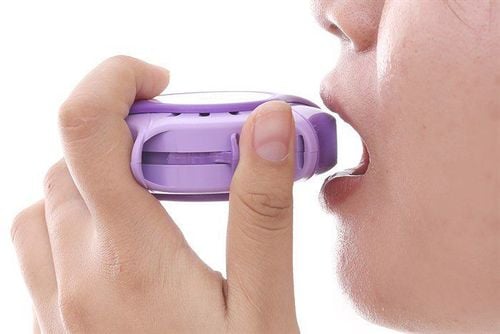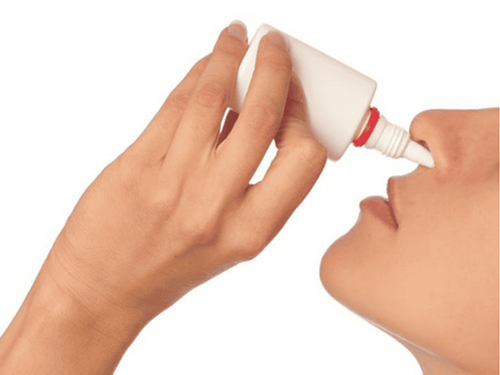This is an automatically translated article.
The article was professionally consulted by Specialist Doctor I Le Van Quang - Ear, Nose Throat Doctor - Department of General Surgery - Vinmec Nha Trang International General Hospital. BSCKI. Le Van Quang is an expert in the field of ENT with 15 years of experience.The maxillary sinus is an easily inflamed sinus, so it is quite common in adults, the most common cause of maxillary sinusitis is an oral bacterial infection. Maxillary sinusitis can cause a number of complications that affect oral health, affect other sinuses or more seriously affect vision.
1. Overview of maxillary sinusitis
Sinuses are cavities located in the skull, these cavities have the effect of reducing the weight of the head, participating in pronunciation and air circulation. In the sinus cavity is lined by the sinus mucosa, the sinus mucosa has a structure similar to the respiratory mucosa, the secretions from the mucosa of the sinuses are poured into the nasal cavity through the nasopharynx.
The maxillary sinus is in the anterior ethmoid group, the maxillary sinus is the largest of the facial sinuses, right next to the nose and below the eye sockets. This sinus is prone to inflammation due to dental diseases. Maxillary sinusitis is a condition in which the lining inside the maxillary sinus is inflamed, caused by many factors.
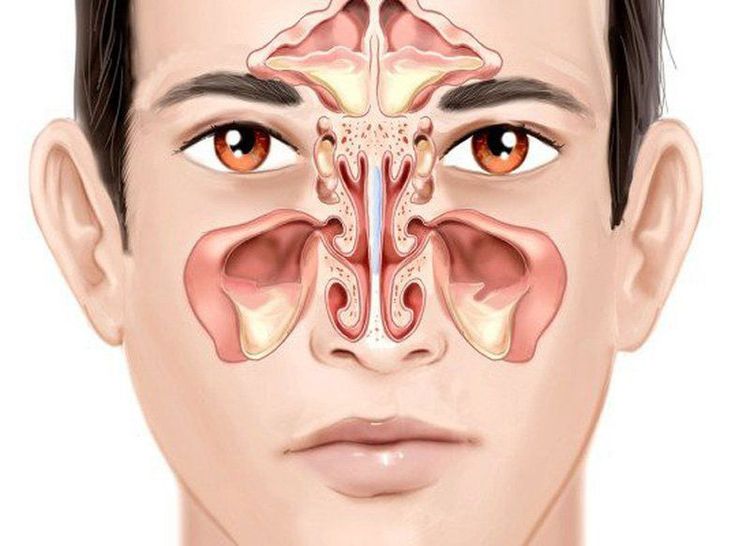
Xoang hàm là xoang lớn nhất ở ngay cạnh mũi - dưới hốc mắt
1.1 Causes of maxillary sinusitis Causes of maxillary sinusitis: Like other sinuses, the group of causes of maxillary sinusitis includes:
maxillary sinusitis due to bacterial infection: The maxillary sinus is often inflamed due to an infection. caused by dental bacteria, oral infections such as caries, pulpitis, periodontitis, tooth 8 misalignment, infection of the tooth root, root cyst, the effects of improper tooth extraction..... In addition, the bacteria that cause upper respiratory tract infections are also the cause of maxillary sinusitis. Other possible causes of maxillary sinusitis include:
Infection with certain viruses that cause respiratory diseases Fungal sinusitis: Fungi are also causative agents of sinusitis Sinusitis due to allergens: Due to the susceptibility to allergies, exposure to allergens causes sinusitis, which can occur seasonally, can have multiple sinusitis and is chronic. Allergens such as pollen, dental dust, pet hair... Due to anatomical abnormalities in the nose such as: deviated nasal septum, nasal cavity tumors, nasal polyps ... Obstructing the circulation of fluid, lead to fluid retention in the sinuses
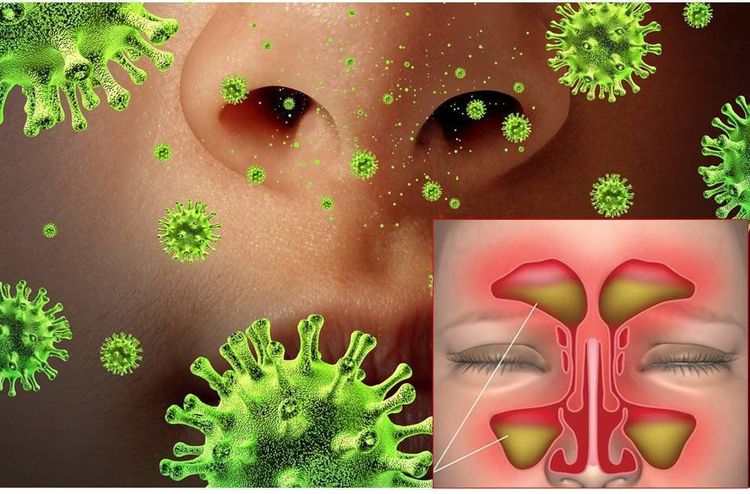
Vi nấm là một trong các nguyên nhân có thể gây xoang hàm
1.2 Symptoms of maxillary sinusitis Symptoms of maxillary sinusitis: When suffering from maxillary sinusitis, the following symptoms may appear. Whether in acute or chronic maxillary sinusitis, symptoms can vary.
Acute sinusitis : In this case, it is often accompanied by acute oral diseases that cause acute manifestations.
Often has a high fever, fatigue, and struggles. Severe pain in the upper jaw, eyes, temples, forehead, pain increases with strong movement, bowing, toothache. Toothache increases at night, making the patient sleepless. There is discharge from the anterior septum, causing nasal congestion and runny nose. Purulent discharge with an unpleasant odor. Chronic sinusitis :
Most of the patients often have inflammatory problems in the mouth. There is discharge from the anterior and middle slits, causing stuffy nose, runny nose. The fluid can run down the throat, causing throat irritation and the discharge has an unpleasant odor. Pain in the upper jaw, pressing on the position of the nose and cheek grooves feels sharp pain, frequent headaches. Affecting vision, patients with blurred vision, severe may not be able to see.

Viêm xoang mạn cũng gây ảnh hưởng đến thị giác
2. The effects of maxillary sinusitis on teeth
Usually, the majority of maxillary sinusitis is caused by an oral bacterial infection, on the contrary, maxillary sinusitis will also affect and affect the teeth.
In the acute stage, the condition of maxillary sinusitis can spread to the root of the tooth, causing the teeth to be loose and the risk of tooth loss, tooth loss, toothache, especially when touching the root. The accumulation of pus in the sinuses can lead to jaw bone loss, alveolar bone loss.
Due to the nature of the two conditions, maxillary sinusitis and oral disease have an impact on each other, so whenever you have oral diseases, you need to treat them thoroughly, maintain oral hygiene, and limit foods. The sweetest thing is before going to bed, get tartar periodically to avoid complications of maxillary sinusitis.
On the contrary, when suffering from maxillary sinusitis, regardless of tooth origin or upper respiratory tract infection, it needs to be detected and treated early to avoid complications that seriously affect oral health. , especially the situation with the risk of alveolar bone loss and tooth loss is very dangerous.
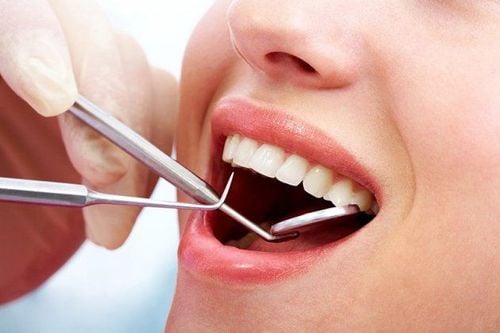
Chăm sóc răng miệng thường xuyên để hạn chế viêm xoang hàm
3. Complications of maxillary sinusitis
In addition to affecting oral health, the condition of maxillary sinusitis can affect other organs, causing complications such as:
Polysinusitis: Because the sinuses in the face are located quite close. Therefore, when the maxillary sinusitis lasts for a long time, other sinuses may also be affected. Patients can have multiple sinusitis at the same time in the frontal, ethmoid, and sphenoid sinuses. Lower respiratory tract infection: This is the most common complication of maxillary sinusitis. The fluid in the sinuses contains bacteria that can flow from the maxillary sinuses down the throat, causing pharyngitis, laryngitis, bronchitis, or pneumonia. Eye complications: The most typical complication is optic neuritis, causing visual impairment, blurred vision. In addition, it can also cause eye abscess. It can also cause complications of sinusitis. The influence of maxillary sinusitis on the mouth has a mutual interaction, such as inflammatory disease in the teeth that is the cause. The main cause of maxillary sinusitis or from maxillary sinusitis also causes dental disease. It is important that we recognize the disease early, take proper care and treatment to prevent complications caused by maxillary sinusitis.
Vinmec International General Hospital examines and treats common nasopharyngitis diseases, head and neck tumors, congenital malformations of the ear, nose and throat area with the most optimal internal and surgical methods for patients, both children and adults. Coming to Vinmec International General Hospital, patients will receive a direct, dedicated and professional examination from a team of qualified and experienced medical staff.
Please dial HOTLINE for more information or register for an appointment HERE. Download MyVinmec app to make appointments faster and to manage your bookings easily.
SEE MORE
Typical signs of sinusitis Beware of eye complications, headaches due to sinusitis What to do with maxillary sinusitis?







